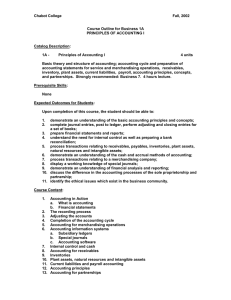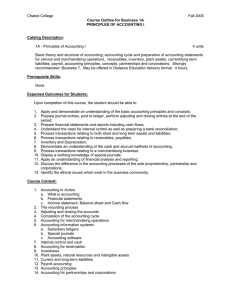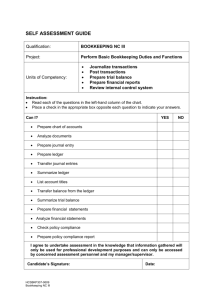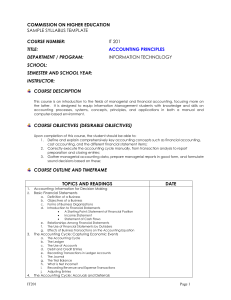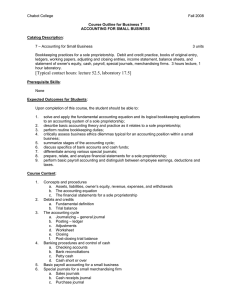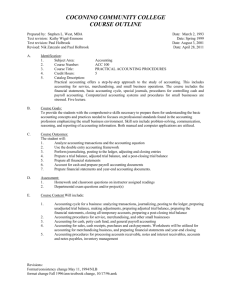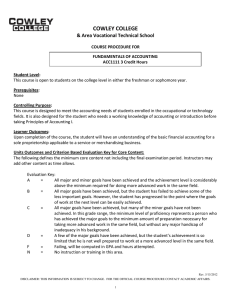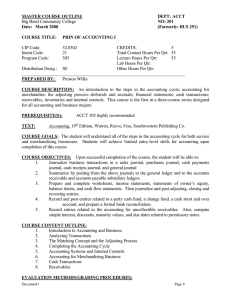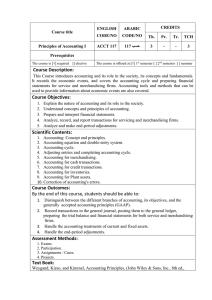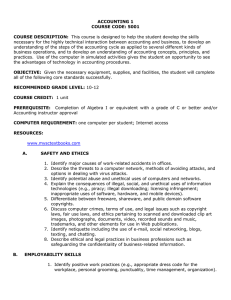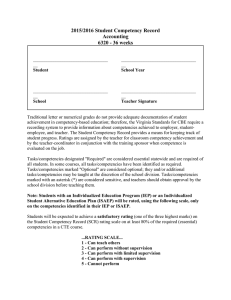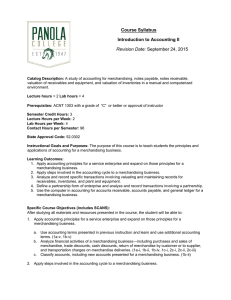Chabot College Fall 2004 – General Accounting
advertisement
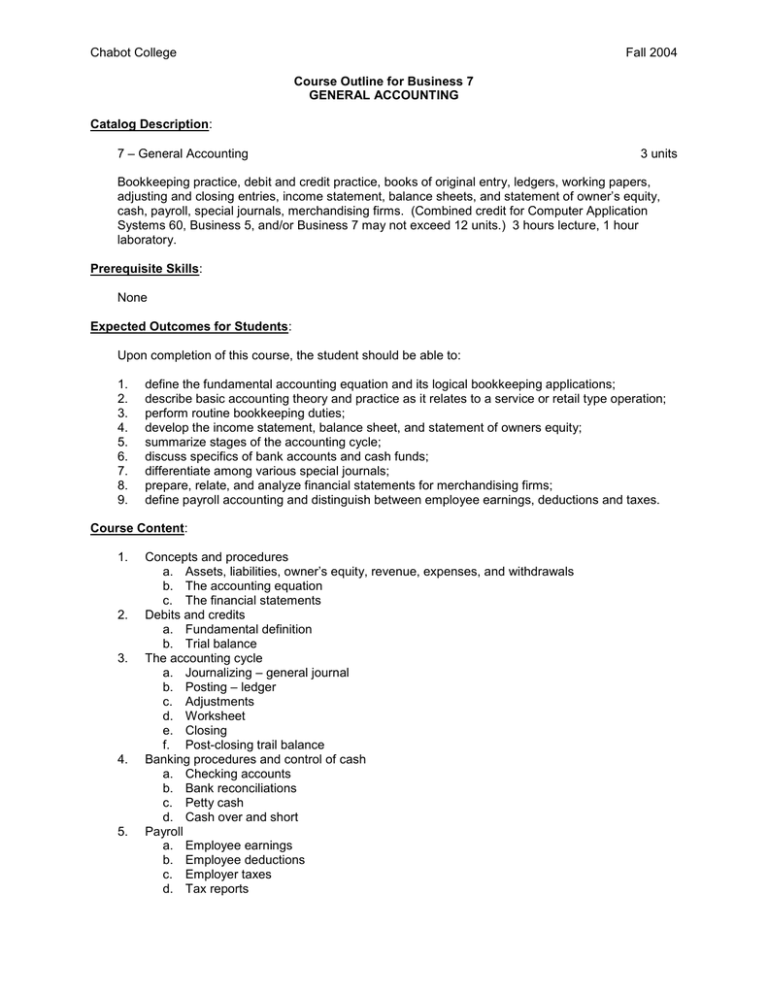
Chabot College Fall 2004 Course Outline for Business 7 GENERAL ACCOUNTING Catalog Description: 7 – General Accounting 3 units Bookkeeping practice, debit and credit practice, books of original entry, ledgers, working papers, adjusting and closing entries, income statement, balance sheets, and statement of owner’s equity, cash, payroll, special journals, merchandising firms. (Combined credit for Computer Application Systems 60, Business 5, and/or Business 7 may not exceed 12 units.) 3 hours lecture, 1 hour laboratory. Prerequisite Skills: None Expected Outcomes for Students: Upon completion of this course, the student should be able to: 1. 2. 3. 4. 5. 6. 7. 8. 9. define the fundamental accounting equation and its logical bookkeeping applications; describe basic accounting theory and practice as it relates to a service or retail type operation; perform routine bookkeeping duties; develop the income statement, balance sheet, and statement of owners equity; summarize stages of the accounting cycle; discuss specifics of bank accounts and cash funds; differentiate among various special journals; prepare, relate, and analyze financial statements for merchandising firms; define payroll accounting and distinguish between employee earnings, deductions and taxes. Course Content: 1. 2. 3. 4. 5. Concepts and procedures a. Assets, liabilities, owner’s equity, revenue, expenses, and withdrawals b. The accounting equation c. The financial statements Debits and credits a. Fundamental definition b. Trial balance The accounting cycle a. Journalizing – general journal b. Posting – ledger c. Adjustments d. Worksheet e. Closing f. Post-closing trail balance Banking procedures and control of cash a. Checking accounts b. Bank reconciliations c. Petty cash d. Cash over and short Payroll a. Employee earnings b. Employee deductions c. Employer taxes d. Tax reports Chabot College Course Outline for Business 7, Page 2 Fall 2004 6. 7. Special journals a. Sales journals b. Cash receipts journal c. Purchase journal d. Cash payments journal e. Combined journal f. Sales tax, credit and debit memos g. Returns and allowances Accounting cycle for merchandising a. Journalizing and posting adjusting and closing entries b. Worksheets c. Preparation of financial reports d. Reversing entire Methods of Presentation: 1. 2. 3. Lecture Discussion Problem solving Assignments and Methods of Evaluating Student Progress: 1. 2. Typical Assignments a. Using transactions and a chart of accounts, journalize the transactions and post them to the general ledger. b. Using adjustments, complete the worksheet. Journalize and post the adjusting entries. Methods of Evaluating Student Progress a. Graded problems b. Examinations c. Assignments d. Final examination Textbook(s) (Typical): College Accounting, McQuaig and Billie, Houghton-Mifflin Publishing, 2004 Special Student Materials: Calculator Revised 11/25/03 DK/hps Revision 1/12/04
